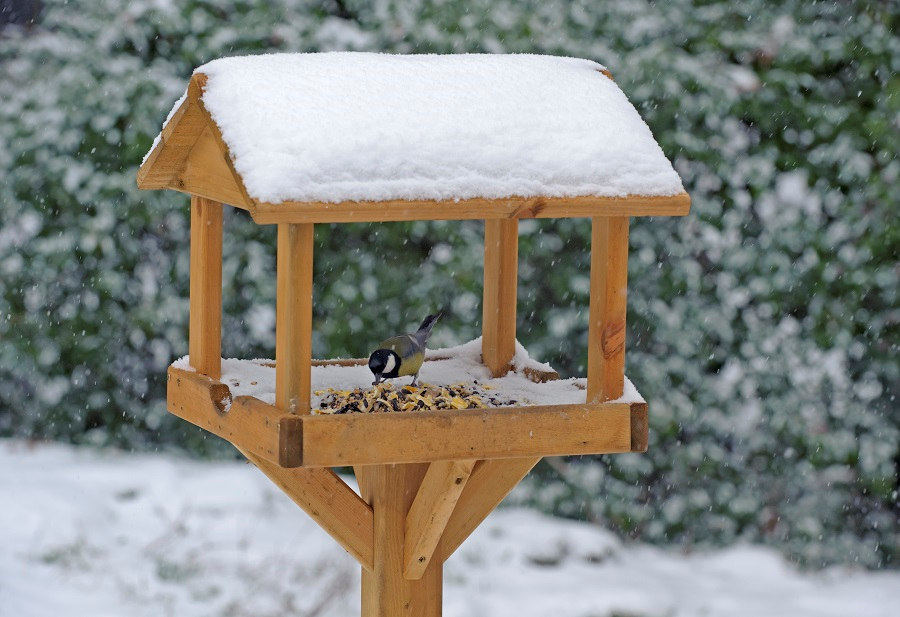Christmas may look quite different for many of us this year, but your garden birds will be just as hungry as ever.
In the winter there are less natural food sources available in the countryside, so any food you put out in your garden or balcony will be very gratefully received.
Phil Carson, the Royal Society for the Protection of Birds (RSPB) Northern Ireland policy officer, gives a flavour of how you can keep the birds well fed in winter.
“The weather is getting a lot colder and harsher now and this can be a difficult time for birds in maintaining their energy levels and ensuring that they’re in good condition ahead of the breeding season and, of course, to survive the winter,” he said.
What we do for birds in our gardens is crucially important at this time of year. You can put up feeders in your garden and you can also create habitat for them too. If you have hedges with berries, those will attract blackbirds and thrushes.
“You can reduce your own food waste and also feed some birds. If you have roast potatoes left after Sunday dinner or Christmas dinner, they can be put out in small amounts and they’re very good for certain species as they have quite a high fat content.
“But if there aren’t any roast potatoes left – which is more likely – birds also love chopped unsalted bacon rind, dried fruit, old apples and pears and grated cheese too.”
What’s dangerous for birds?
According to Carson, cooking fat from your Sunday roast or Christmas turkey can become smeared on birds’ feathers, which makes it impossible for them to keep dry and warm, so keep that for yourself.
Some other foods can also be dangerous for birds, including dried coconut, cooked porridge oats, and milk.
Packaged bird food is always a lovely present for the birds as well – sparrows, tits and finches will all visit feeders containing nuts, fat or seed mixtures with sunflower hearts, flaked maize, millet and nyjer seed.
The insect-eaters, the dunnocks, robins, starlings, and wrens for example, prefer mealworms but will eat other types of food too. Suet-based products are particularly calorific, so can be a big boost in getting your birds through the colder nights.
Carson says there are lots options when it comes to the food you put out for birds:
“Black sunflower seeds are small, oily and rich and they’re eaten by a range of bird species and those are very good for the birds maintaining condition.
“Nyjer seeds are also very popular, while crushed peanuts are very good for robins, dunnocks, etc. Having a mix of food available benefits a wider range of species, because they all have their own particular preferences.”
What should birds drink?
Carson urged the public not to forget the drink side of the meal:
Birds are slightly easier to cater for than your loved ones in this case during the festive season – all they need is fresh water for drinking and bathing.
“This can be harder for birds to find in winter as ponds start to freeze, but you can keep your birdbath ice-free by floating a ping-pong ball on the surface.
“The slightest gust of wind will keep the ball moving and stop the water from turning to ice,” he concluded.

